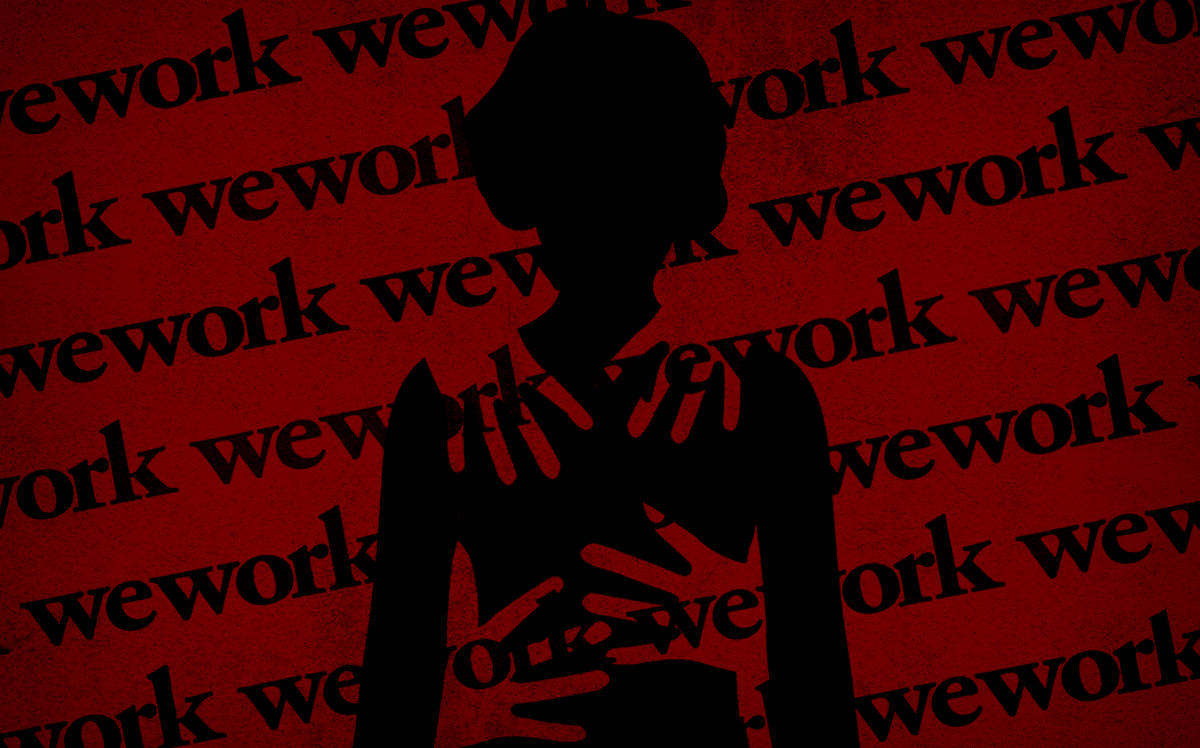A new federal lawsuit accuses WeWork of bungling its response to a complaint that a mid-level manager regularly wielded weapons at the office, bragged of ties to the mafia, and had a reputation for making unwanted advances on female staff as well as WeWork clients.
Rather than rectify the situation, the lawsuit claims that WeWork used the excuse of economic harm caused by Covid-19 to terminate the plaintiff, Alexandria Fitzgerald.
“WeWork cynically used the pretext of a pandemic to fire our client for speaking out about workplace sexual harassment and the mental anguish she suffered as a result of WeWork’s hostile work environment,” Fitzgerald’s attorneys said in a statement.
WeWork says it investigated Fitzgerald’s claims and found them without merit.
After WeWork hired Fitzgerald in March 2019, David Stiles, a project executive, became her manager. The lawsuit alleges that Stiles regularly brought weapons to work, including knives and a crossbow, and featured his weapons in the background of company Zoom calls following the onset of the pandemic.
Fitzgerald alleges that during a 2019 business trip together to Kansas City, the married Stiles texted her late at night to “cuddle” with him in his hotel room after requesting the hotel give them adjoining rooms, despite her protestations, and initiating unwanted physical contact.
She claims Stiles also advised her during the trip, without solicitation, to “have a bunch of one-night stands” before settling down herself.
Also in 2019, another female project manager at WeWork allegedly told Fitzgerald, “you missed it, [Stiles] sexually harassed me, he touched my breasts.” Stiles also joked on a 2020 Zoom call that the other female project manager should be a stripper or pole dancer, the lawsuit alleges.
The Kansas City trip and its alleged aftermath resulted in Fitzgerald seeking psychotherapy for what the complaint describes as “debilitating mental anguish” as the result of “a hostile work environment.”
After describing the Kansas City trip to her supervisor, and saying she wasn’t yet ready to file a complaint with HR, Fitzgerald says she received an email from HR acknowledging her complaint and that this violated her privacy.
Fitzgerald’s lawsuit alleges that WeWork initially said she would not have to work with Stiles on future projects, but continued to be assigned to his team. She was ultimately able to avoid collaborating with the person she considered her harasser, but was told she should be more “appreciative” when she expressed not feeling supported by the company.
WeWork declined to answer specific questions about the case, including whether Stiles was still employed by the company, but insisted that it had taken remedial action despite also saying that “Ms. Fitzgerald’s legal claims have no merit.”
Fitzgerald’s attorney Parisis Filippatos said he would “not be surprised” to find during discovery that WeWork’s system for dealing with discrimination claims was deficient, given the company’s culture of “competition and strife.”
After bungling its IPO and replacing most of its executive team, WeWork has suffered a number of other setbacks, including closing its first-ever location and reneging on plans to expand in Manhattan.
It’s the third discrimination lawsuit this week filed against the co-working company. On Thursday, Christopher Clermont, from the former head of diversity of inclusion, alleged that the company underpaid minority employees and blocked them from advancing into leadership positions. Another former employee, Diane Allen, accused the company of sexual harassment, race and gender discrimination, equal pay violations and retaliation.
Contact Orion Jones at orion.jones@therealdeal.com
